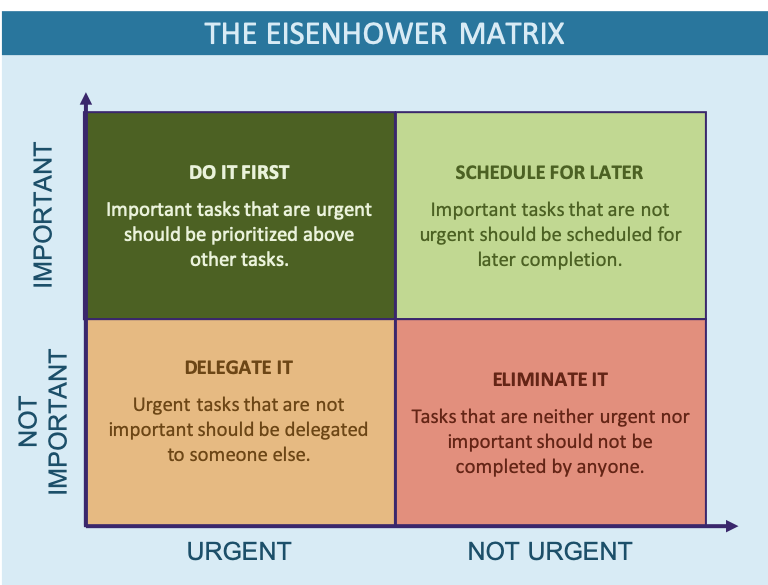The Eisenhower Matrix Prioritization Tool
This tool is a four-box, 2×2 matrix model that to help with the prioritization of tasks.
To use it, individuals consider the importance of a task on the vertical axis and the urgency of a task on the horizontal axis. You should do tasks that are both urgent and important first. And you should schedule tasks that are important but not urgent for a later time. As for your tasks which are urgent but unimportant, you should delegated them as much as possible. Finally, you should eliminate (not do at all) those tasks which are neither urgent nor important.

The Eisenhower Matrix Prioritization Tool is a useful way of thinking about things, and a useful tool for certain people.
Task focused people often benefit from reviewing their to-do list first thing in the morning to decide what to work on. If you’re the type of person who does this, you might benefit from using the Eisenhower Matrix as it provides a structure for the prioritization activity, and results in a clear plan of action for the day ahead.
In practice, there are some challenges with the model when you’re managing not just yourself, but a range of stakeholders. Specifically, challenges often arise around importance.
Things that are important for one person in the world of work may not be important for another. Something your customer wants may appear more “important” than something your supplier wants. But prioritizing between these two stakeholders is a judgement call. Making these judgement calls sometimes creates a division between what is good for the overall organization, and what is good for the individual making the decision.
Despite this challenge, this is a good tool that’s worth experimenting. If you try it, you might find it’s helpful for you.
Sources and Feedback
This post on The Eisenhower Matrix Prioritization Tool is based on original work attributed to former American president Dwight D. Eisenhower, but we have no specific academic references for further reading.
We’re a small organization who know we make mistakes and want to improve them. Please contact us with any feedback you have on this post. We’ll usually reply within 72 hours.

